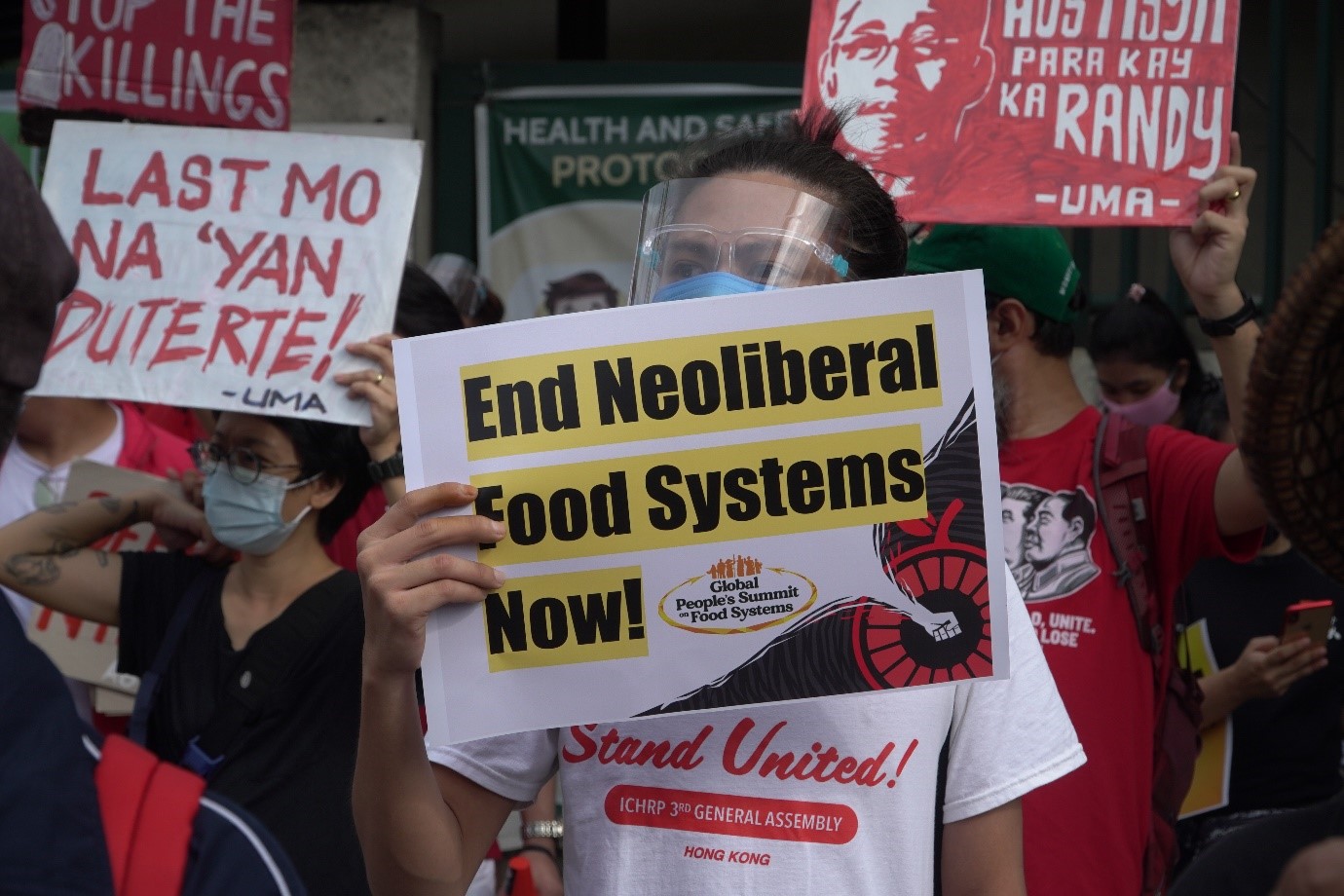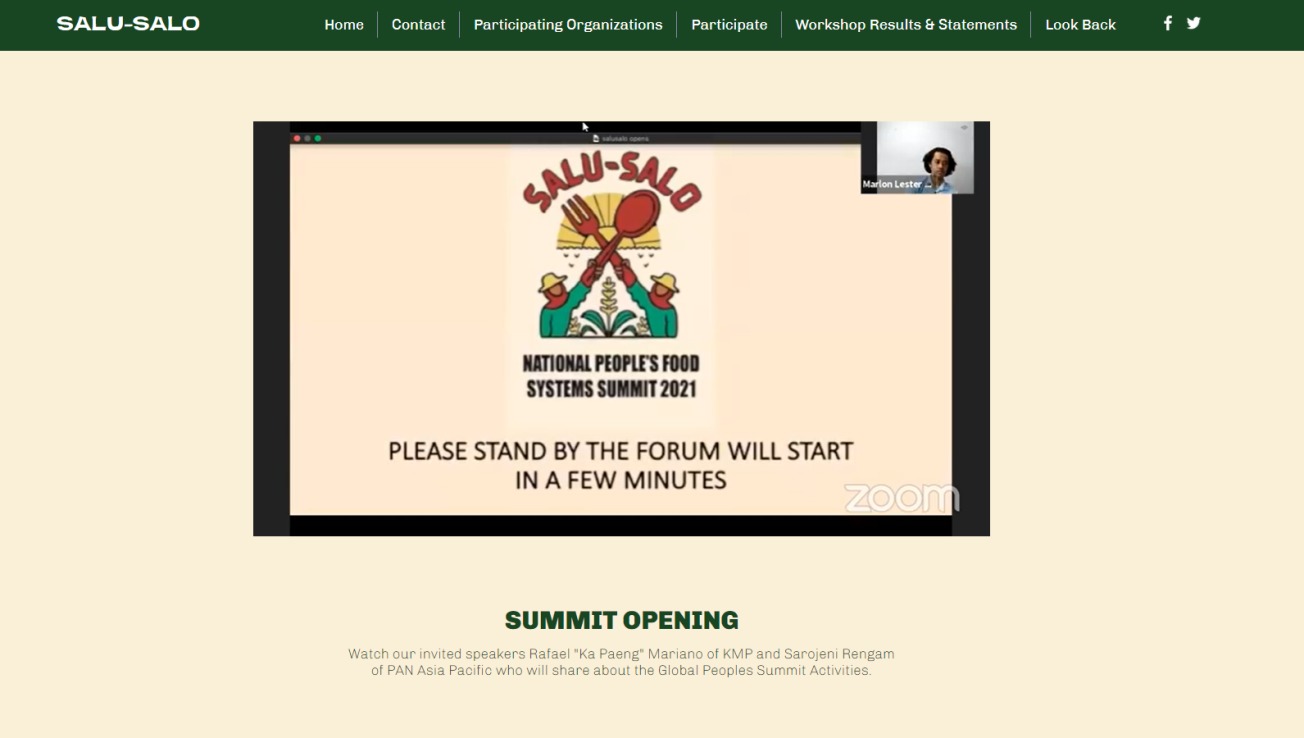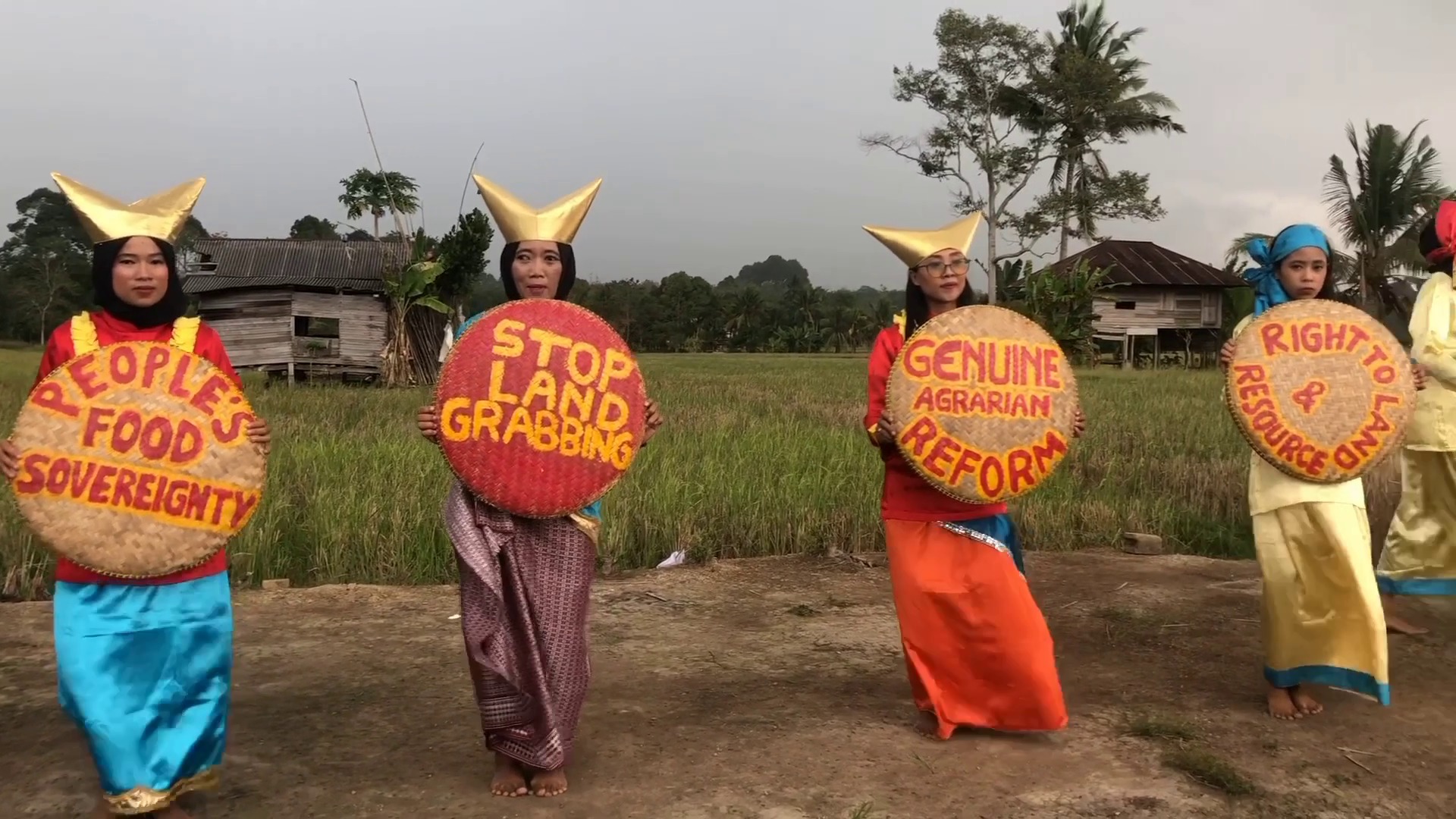
The food crisis is both scourge and irony: hunger amidst plenty, starving millions existing side by side with food production capable of feeding the people many times over. Nothing better demonstrates the distorted priorities of the corporate world than the terrible inequities of food distribution. It is in this harsh yet changeable reality that the Asian People’s Exchange for Food Sovereignty and Agroecology or APEX Platform and its partner organizations stand firm with their aim to achieve food sovereignty through agroecology.
For APEX, the only meaningful way to achieve a just and sustainable food system is the people’s assertion for food sovereignty through agroecology where the local communities and their rights and aspirations are front and center of food systems transformation.
How we define food sovereignty is how we consider and maintain the farmers’ full agency to the world’s food systems; right to food in a more comprehensive demand for production of nutritious, culturally acceptable, and agroecological-produced foods. However, delusional and unsustainable corporate-led “solutions” backed by neoliberal state and global policies make food sovereignty hard to achieve.
Corporate-captured food systems
Corporate control on food and agriculture hinders a genuine transformation of the food systems — government policies supposed to help farmers and food producers only benefit corporations while international spaces like the recent United Nations Food Systems Summit (UN FSS) were dominated by agribusinesses and false food advocates like Bill Gates.
“Nowhere in the UN FSS highlights land concentration in the hands of big agribusiness firms and their network of local landlords. Agrochemical transnational companies push discredited false solutions to the food, biodiversity and climate crises, this time repackaged as “innovations and part of food systems transformations.” said Sarojeni Rengam, PAN Asia Pacific executive director during the first APEX regional conference.
In response to the UN FSS, people’s movements and civil society organizations around the globe launched the Global People’s Summit (GPS) on Food Systems. The workshops, public forums, and consultations conducted under GPS were able to produce People’s Action Plans that represent the concrete demands and campaigns of farmers, food producers and advocates.
The prevailing corporate capture of the food systems that pushes its agenda of false solutions along with its impractical and damaging practices, as observed from the last 50 years through the implementation of a corporate-led Green Revolution, tells us that it is more of an inhumane business venture rather than a humanitarian one. Global corporations appropriate the most fertile lands and force production and consumption systems not necessarily appropriate to its domestic requirements, further controlling both the internal and external markets.
People’s initiatives for food systems change
To counter the control of corporations on the food systems, peasant organizations and advocates have been active in unmasking the food crisis created by for-profit food production while at the same time campaigning for a food systems transformation.
In the Philippines, peasant group Kilusang Magbubukid ng Pilipinas or Peasant Movement of the Philippines(KMP) co-convenes the Agroecology X Network and through its year-long campaign Salu-salo, they mainstream farmers’ initiatives, like the bungkalan (collective farming) and agroecological fairs, where farmers sell their agroecological produce. ”Our efforts to campaign for the food systems we want for the Philippines started even before there was news of the UN FSS. In our Agroecology X Network, one of the ways we expressed our campaign for the food systems and farmers’ rights to till the land is through our bungkalan activities – farmers collectively till the land, and they collectively decide what sustainable practices they could do. This collective farming does not just involve the farmers, but the whole community also helps in tilling the lands.” Shared Kathryn Manga, international liaison officer of KMP.

“When we do our agroecological fairs we don’t just come together to promote farmers’ products, our networks also highlight the issues of different sectors like land grabbing and rampant killings of farmers to raise the awareness of the public to these issues.” Manga added.
Triana Wardani, secretary-general of the peasant women’s organization in Indonesia, Serikat Perempuan Indonesia (SERUNI), shared that they have conducted campaigns on food systems amid the COVID-19 pandemic. One of their major campaign on the food systems is part of GPS and National Peasant Day (September 24). “Our campaign here in Indonesia consisted of three activities; build-up activities, organizing, and mobilizing” Wardani added.

According to Wardani, build-up activities include conducting social investigation and education on the food system and impacts of the pandemic to the peasant, workers, and women. While organizing activities aims to expand the membership of the organization in many regions, mainly in Sumatra, Kalimantan, Sulawesi, and Java island. Their mobilizing activities is to encourage women to actively participate in mass protests, campaigns, and educational activities. Through the mobilizing activities is where they practice collective agricultural activities and cultural activities (dance, music and poems).
In Pakistan, Pakistan Kissan Mazdoor Tehreek (PKMT) launched its Campaign for Safe and Nutritious Food with its major objective to educate the society regarding the production and consumption of safe and nutritious food by highlighting the human and environmental cost of corporate-driven and agrochemical food production.
One of the major issues highlighted by the campaign is the latest attempt of multinational corporations to control the livestock sector at the expense of small and landless farmers through the pasteurization law that would make the selling of fresh and raw milk a criminal offense. “These acts are a threat to the livelihood and food security of small and landless farmers and others associated with the supply chain. We investigated the situation and had a series of discussions with rural communities to understand the developments on the ground and how it would affect them” said Raja Mujeeb, steering council member of PKMT.
PKMT’s investigation and research resulted in the publication of several primers that will further explain the corporate capture of the dairy and livestock sector in Pakistan.
APEX aims to sustain its platform of enabling active engagement and mobilizing between organizations and individuals across the globe who are one with its goal for food sovereignty while resisting neoliberal state and global food policies. Ultimately, to end corporate monopoly control of food systems is to fight for people’s rights to just, equitable, and healthy food; food that is produced and cultivated by farmers and the knowledge of the community. Food that puts forward the dynamic of solidarity, of a collectivized and humanitarian system of production.
APEX © Copyrights 2021. All rights reserved.